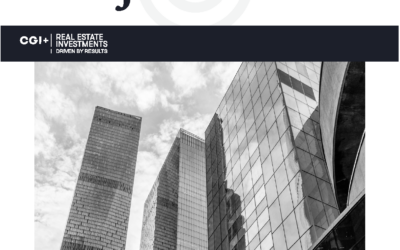To say we’re living in strange times is, perhaps, the biggest understatement of the year. There are few areas of our lives and work that COVID-19 has not affected, from stay-at-home orders, masks as the new normal, school shut-downs, and endless Zoom meetings (hopefully with pants on). The economy has not been immune either, and there are few sectors, if any, that have not felt the impact. The hospitality industry has been especially hard-hit, but there is a notable exception. The boutique extended stay hotel market is a bright spot on the economic horizon.

A Surge in Extended Stay Hotel Demand
The popularity of the boutique extended stay hotel market has soared, even as other sectors struggle. Business travelers who utilize hotels five or more nights in a stay comprise a healthy 25% of the demand for U.S. hotels – but extended stay inventory makes up just 8% of the total supply. This is changing: while supply growth for all U.S. hotels was growing at 2% in 2019, we saw a larger uptick in upscale accommodations (3.7%) and extended stay hotels (6.9%).
Strong growth and demand have positioned the boutique extended stay hotel market for success even as we live in the age of Coronavirus. In fact, this segment is expected to be least affected by the pandemic. Let’s look at the numbers:
Data from March 2020 shows that the U.S. hotel industry saw a 49% decline in revenue per available room. For extended stay lodging, this was just 10 – 15% compared to 2019. What’s the “why” behind this?
The reasons for continued extended stay hotel demand come down to the benefits of this model:
- Rather than feeling like a transitory guest, people feel like residents. They can shelter in place or self-isolate if necessary. And they can do so in the comfort of their “own” home – with a full array of amenities.
- Essential work (e.g., construction, traveling health care, government projects, trucking) continues, and crews need lodging.
- Many extended stay properties have agreements with FEMA; if patients are not sick enough to require hospitalization but need to be quarantined, these facilities offer a safe, effective solution. Essentially, FEMA leases it, uses it, and then completely cleans and sanitizes it upon guest departure.
- Extended stay hotels can receive advantageous government contracts as their rates are often lower than the government per diem. For example, in many areas, extended stay hotels are providing home-away-from-home for National Guard units.
- International students who cannot remain at their schools and cannot return home are also finding refuge in these hotels.
- Extended stay hotels can be run on skeleton crews when necessary. Upscale boutique hotels are known for their stellar, personalized service. In emergency situations – and the last few months can certainly be deemed as an emergency – the load of housekeeping, for example, is greatly lightened as there is not frequent guest turnover.
These factors help the boutique extended stay hotel market build in resilience, and they will help these properties weather the pandemic storm with a higher degree of success compared to the overall U.S. hotel market.
A New Normal
And what about when life returns to normal – or we forge out a new normal? Extended stay hotel demand will continue to grow, especially when it comes to upscale accommodations. Factors driving this include the health of the business travel sector. As we’ve seen, even when travel is restricted, there is still demand as project-work, emergency/healthcare initiatives, and governmental contracts continue.
Beyond this, upscale extended stay hotels are carving out a strong niche that appeals with business-savvy travelers:
- Accommodations are not impersonal and generic. Rather than a chain you can find in any city, boutique hotels offer a unique experience that reflects the city in which they are located.
- They are plug and play. There’s a reason some people choose to live in hotels! Extended stay accommodations feel more like a one-, two-, or even three-bedroom apartment. They are fully furnished, and quite tastefully. Pieces are curated to reflect the unique identity of the boutique hotel and its area. Again, this is not generic, and when you are staying for any length of time, this is important. Kitchens are included, as is laundry service, concierge, and, often, boutique hotels have high-quality restaurants or cafes.
- They are social. Staying in a hotel can be isolating – even when you’re not self-isolating! In normal times, upscale extended stay hotels offer a host of amenities, including onsite gyms, workout classes, social hours, cocktail hours, and more. If you want to mix and mingle, you can.
- The boutique extended stay hotel market is largely driven by the gig economy. As more people become “nomadic” in terms of their work, professionals will look for homes-away-from-home that are easy, convenient, clean, comfortable, stylish, and fully loaded in terms of amenities.
Despite the current economic uncertainty, in CGI’s portfolio, rent payments have surpassed expectations. Investing in the boutique extended stay market is a smart, strategic move that has proven to be insulated from our current realities and well-positioned for future growth.

